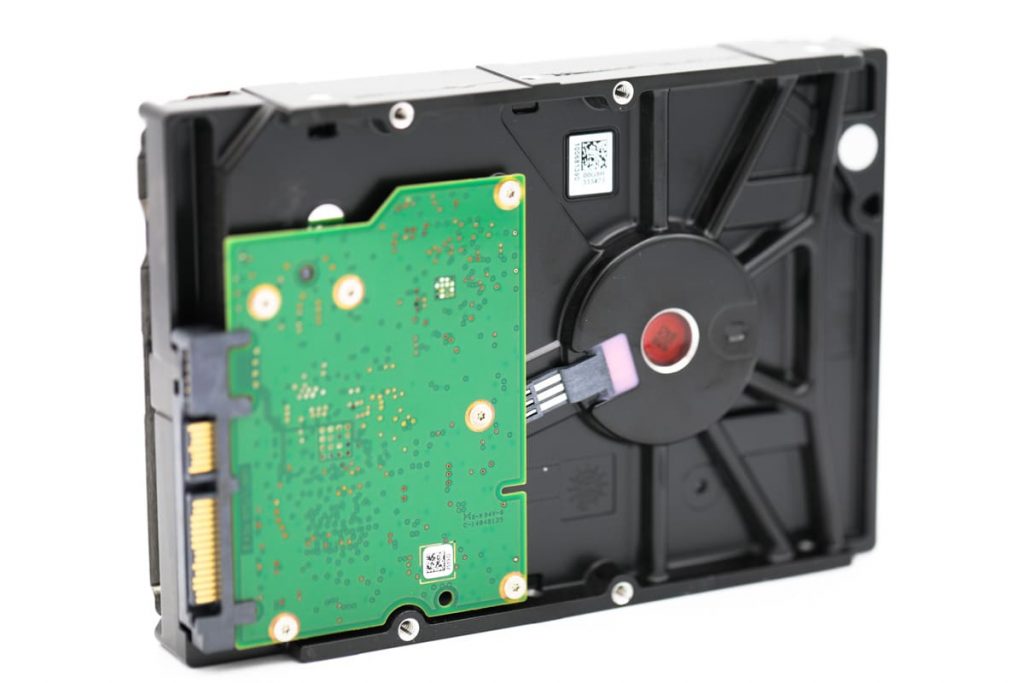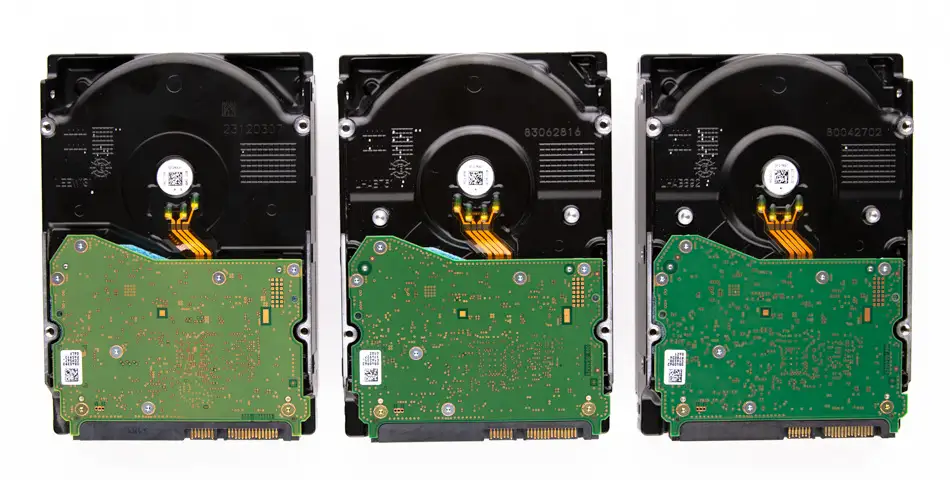As more and more of our daily activities become digitized, our reliance on computers and other digital devices increases. From personal photos and videos to sensitive business data, we store a wealth of information on our devices. One of the most devastating things that can happen to this information is the corruption of a hard drive.
A corrupted hard drive can cause significant damage, potentially resulting in the loss of valuable data. Fortunately, with the help of PITS Global Data Recovery Services, it is possible to recover lost data from a corrupted hard drive. In this blog, our recovery team will explore the causes and symptoms of a corrupted hard drive and the data recovery process.
Causes of a Corrupted Hard Drive
Corrupted hard drives are a common and disruptive issue for computer users. Hard drive corruption can be caused by physical wear, tear, or manufacturer defects. While not always preventable, understanding the causes can help mitigate the risk and guide appropriate action when corruption occurs.
Physical Damage
Physical damage is one of the most common reasons for hard drive corruption. When the hard drive’s components become damaged, it can cause data corruption and, in some cases, complete data loss. Dropping the drive or exposing it to extreme temperatures can cause damage to the hard drive’s delicate components, including the read/write head and platters.

Power Failures
A power surge happens if there is a sudden increase in the electrical current flowing through the power lines. This sudden increase in power can cause damage to the hard drive’s electronics, including the controller board and firmware. Power surges can also cause damage to a hard drive’s electronics, leading to corruption.
Software Issues
Malware, viruses, and other software issues can also lead to hard drive corruption. Malware and viruses can infect a hard drive and cause damage to the data stored on it. They can also cause issues with the operating system, leading to file system corruption and hard drive failure.
Human Error
Deleting important files or improperly formatting a drive can also result in hard drive corruption. When a hard drive is formatted or files are deleted, the data is not necessarily erased. Instead, the data is marked as “available” for new data to be written over it. If new data is written over the old data, the original data may be lost forever.
Natural Disasters
Natural disasters such as floods, fires, and earthquakes can damage devices and cause hard drive corruption. If a hard drive is exposed to water, fire, or other types of damage, it can damage the read/write head and platters, resulting in data corruption or loss.
Symptoms of a Corrupted Hard Drive
Slow Performance. Slow performance is one of the most common symptoms of a corrupted hard drive. A corrupted hard drive may take longer to load programs or files, resulting in slow performance. The computer may also freeze or crash frequently.
Strange Noises. If you hear unusual noises from your computer or device, it may indicate a hardware issue, including hard drive corruption. These sounds could include clicking, grinding, or whirring noises.
Blue Screen of Death. A blue screen of death (BSOD) can be caused by a number of issues, including hard drive corruption. When a hard drive is corrupted, it can cause problems with the operating system, leading to a BSOD.
Missing Files. If you notice that files are missing from your computer or device, it may be due to hard drive corruption. When a hard drive is corrupted, it can cause data loss, resulting in missing files.
Recover Corrupted Hard Drive with PITS
If you suspect that your hard drive is corrupted, it is important to act quickly to avoid losing valuable data. The first step is to contact PITS Global Data Recovery Services.
The data recovery process begins with an evaluation of the hard drive to determine the extent of the damage. PITS Global Data Recovery Services use specialized tools to diagnose the problem and identify any potential issues.
Once the evaluation is complete, PITS Global Data Recovery Services will provide a detailed report outlining the extent of the damage and the steps required to recover the data. This report will include a quote for the data recovery services needed.
How to Fix a Corrupted Hard Drive Steps
How to fix a corrupted hard drive begins with a basic understanding that each situation is unique, depending on the cause and extent of the corruption. Some methods might work for one situation but not for another. Before diving into the steps, ensure you’ve backed up your data, if possible, to prevent further loss. Let’s look at the practical steps to tackle hard drive corruption effectively.
Identify the symptoms
The first step is to identify whether your hard drive is corrupted. Common signs of a corrupted HDD include sluggish performance, error messages when accessing files, and failure to boot up.
Run system diagnostics
The majority of operating systems come equipped with integrated utilities designed to diagnose problems related to hard drives. Running these diagnostic tests can help pinpoint the cause of the corruption and provide potential solutions.
Replace hardware components
In some cases, hard drive corruption may be caused by faulty hardware components. Replacing the damaged parts or seeking professional assistance for repairs may be necessary.
Reformat the hard drive
If all else fails, reformatting your hard drive can help resolve corruption problems. However, this should be a last resort as it will erase all data on the drive.
Consult with PITS Global
If the previous mentioned steps don’t mitigate the issue or the data recovery process is too complex, consider seeking professional help. PITS Global is a renowned data recovery company specialising in hard drive corruption. Our team of experts can assist in data recovery from logically and physically damaged storage devices and provide preventative measures to avoid future data loss.
How to Prevent Hard Drive Corruption
A corrupted hard drive can be a devastating experience, but with the help of PITS Global Data Recovery Services, it is possible to recover lost data. Act quickly if you suspect that your hard drive is corrupted, as delaying the recovery process can result in permanent data loss. Another way to avoid complete data loss is to prevent hard drive corruption. There are several measures you can implement for the health of your HDD.

- Backing up your data regularly. Backing up your data regularly ensures you have a copy of your important files in case of hard drive failure.
- Keeping your software up to date. Regularly updating your computer and software can help prevent issues and vulnerabilities that can lead to hard drive corruption.
- Using a surge protector. A surge protector (UPS) can help protect your computer and other devices from power surges that can cause hardware damage.
- Properly shutting down your computer. Shutting down your PC correctly ensures that all programs and files are closed before the hard drive is powered off.
A corrupted hard drive can be a frustrating and potentially devastating experience. However, with the assistance of PITS Global Data Recovery Services and by taking preventive measures, you can minimize the risk of data loss and ensure that your important files and information remain safe and secure.
If you are facing corruption on your hard drive, get in touch with our experts. You can contact us by filling in the “Request Help” form or phoning our customer service at 855-967-3984. We will help you with your corrupted hard disk drive in any way we can.
Frequently Asked Questions
What are the most common signs of a corrupted hard drive?
Common signs include error messages when accessing files, sluggish computer performance, and failure to boot up.
Can all corrupted hard drives be fixed?
While many cases of hard drive corruption can be fixed using the appropriate methods, there are instances where the hard drive may be irreparable, particularly in cases of severe physical damage.
How can I prevent hard drive corruption?
To prevent hard drive corruption, it is important to keep your OS and security software updated, steer clear of suspicious emails or websites, and properly shut down your computer. Regular data backups are also vital.
Can a corrupted hard drive be fixed?
Certainly, it is possible to repair a damaged hard drive. Nonetheless, the effectiveness of the repair hinges on different factors, including the cause and magnitude of the corruption, as well as the techniques employed. Engaging the services of professional data recovery specialists can enhance the likelihood of a prosperous retrieval.
